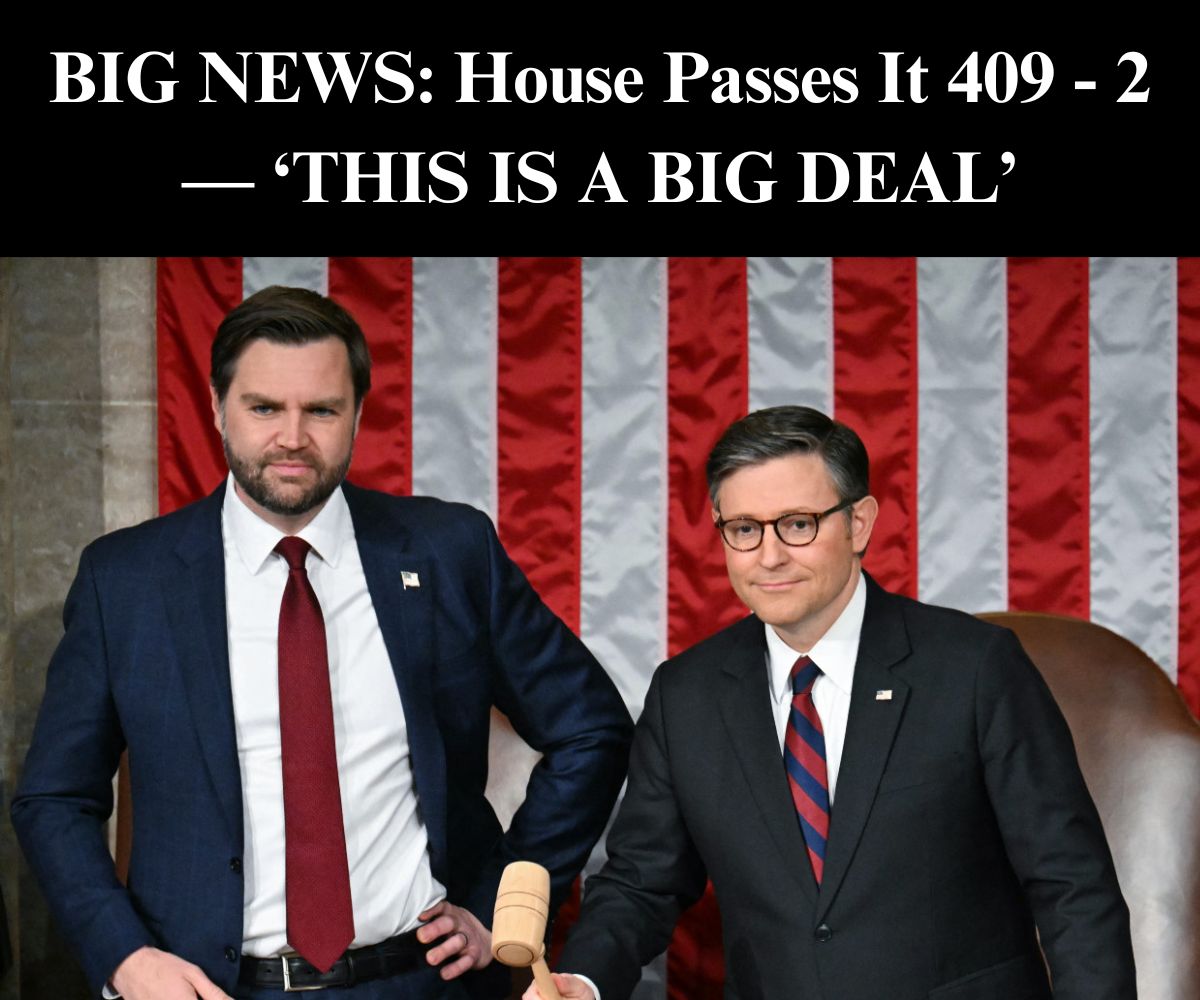The Take It Down Act, a measure that would criminalize the publication of nonconsensual sexually explicit deepfakes, passed the House on Monday and now heads to President Trump’s desk for his signature.
The bill cleared the House in a decisive 409–2 vote, with 22 members not voting. Reps. Thomas Massie (R-Ky.) and Eric Burlison (R-Mo.) cast the only votes against the measure, The Hill reported.
The bill would make it a federal crime to purposely post computer-generated, realistically looking pornographic images or videos that appear to depict identifiably real persons on social media or other platforms online.
Trump signaled last month that he intends to sign the measure into law.
“The Senate just passed the Take It Down Act. Once it passes the House, I look forward to signing that bill into law,” Trump told a joint session of Congress in early March. “And I’m going to use that bill for myself too if you don’t mind, because nobody gets treated worse than I do online, nobody.”
First Lady Melania Trump also voiced her support for the bill, attending a roundtable on the measure last month. She promptly praised its passage on Monday evening.
“Today’s bipartisan passage of the Take It Down Act is a powerful statement that we stand united in protecting the dignity, privacy, and safety of our children,” the first lady wrote in a statement.
The measure was sponsored by Senate Commerce Chair Ted Cruz (R-Texas) and Senator Amy Klobuchar (D-Minnesota) in the upper chamber, while Representatives Elvira Salazar (R-Florida) and Madeline Dean (D-Pennsylvania) were the co-leads on the House version.
Cruz celebrated the bill’s passage on Monday, calling it a “historic win in the fight to protect victims of revenge porn and deepfake abuse.”
“By requiring social media companies to take down this abusive content quickly, we are sparing victims from repeated trauma and holding predators accountable,” he noted in a statement.
Massie took to the X platform to explain his “no” vote, writing, “I’m voting NO because I feel this is a slippery slope, ripe for abuse, with unintended consequences.”
The measure is the first youth online safety bill to clear Congress this session, giving lawmakers a rare win after related proposals stalled last year. Tech-safety advocates and families have spent years lobbying for laws like the Take It Down Act, aiming to hold tech companies accountable for social media harms to children, The Hill noted.
Many online safety advocates are backing the Kids Online Safety Act (KOSA), which would establish rules governing the features tech and social media companies offer to children.
Though the Senate passed KOSA 91–3 last session, it stalled in the House amid GOP leadership’s concerns that it could curb free speech.
While some lawmakers worry Trump’s ties to Big Tech might lead him to oppose the measure, Sen. Ted Cruz told The Hill last month that he doesn’t expect that to occur, said The Hill.
“Every conversation I’ve had with the Trump administration on this topic has evidenced a commitment to protecting free speech and ending Big Tech censorship,” he said, pointing to the president and first lady’s support of the Take It Down Act.
Certain tech policy groups, including Americans for Responsible Innovation (ARI), an AI advocacy group, hailed the passage of the bill.
“For the first time in years, Congress is passing legislation to protect vulnerable communities online and requiring tech giants to clean up their act,” ARI President Brad Carson said. “This bill is going to make a difference in the lives of victims and prevent another generation from being targeted with non-consensual intimate deepfakes.”
Others, meanwhile, said they were worried that the legislation could wind up stifling free speech.
“The TAKE IT DOWN Act is a missed opportunity for Congress to meaningfully help victims of nonconsensual intimate imagery,” said Becca Branum, the deputy director of the Center for Democracy and Technology’s Free Expression Project.
“The best of intentions can’t make up for the bill’s dangerous implications for constitutional speech and privacy online,” she said Monday.
